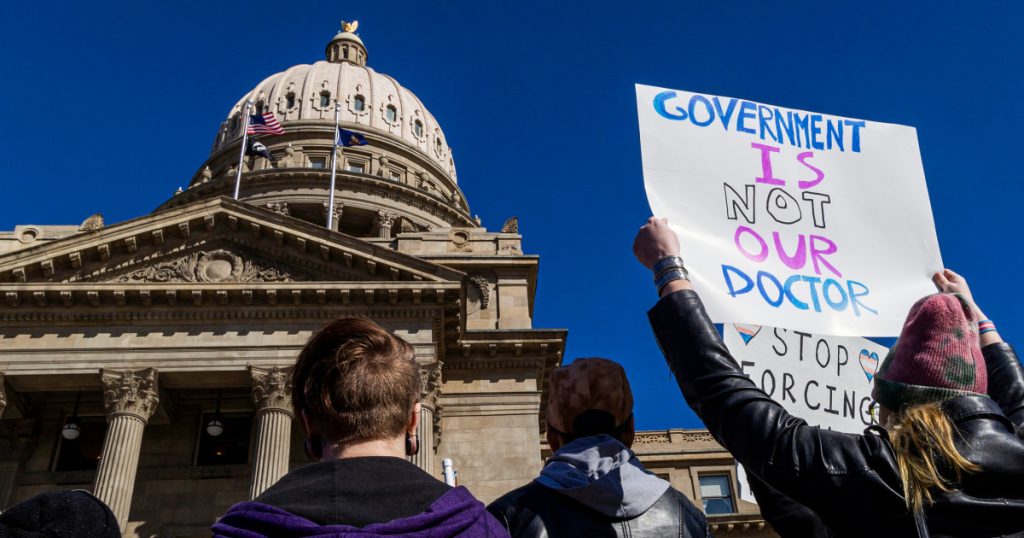The Supreme Court allowed Idaho to enforce a law banning gender-affirming healthcare for transgender teens, granting an emergency request from state officials. The law, passed last year, prohibits treatments like puberty blockers, hormone therapy, and surgeries for transgender minors. The court’s liberal justices objected to the decision, arguing that the law should have remained blocked. U.S. District Court Judge Lynn Winmill had previously ruled that the state could not enforce the law while litigation continued, a decision the Supreme Court overturned.
Conservative Justice Neil Gorsuch, in an opinion explaining his vote to allow the law to be enforced, criticized the lower court for blocking the entire law instead of just applying it to the two plaintiffs in the lawsuit. The ACLU, representing the transgender teens challenging the law, expressed disappointment in the decision, calling it harmful to transgender youth and their families. Idaho Attorney General Raul Labrador defended the law, stating that the state has a duty to protect children from “life-altering drugs and procedures” and that medical care for minors should be based on biological reality.
The plaintiffs in the case, two transgender teenagers identified as Pam Poe and Jane Doe, argue that the law violates the 14th Amendment by discriminating on the basis of sex. Both teenagers have been prescribed puberty blockers and hormone therapy, which they say has improved their mental health. The law, known as the Vulnerable Child Protection Act, is one of many similar bans enacted by over 20 states across the country. The Supreme Court’s decision to allow the Idaho law to be enforced may have broader implications for challenges to similar laws in other states.
The Supreme Court’s intervention in the Idaho case has sparked debate over the balance between protecting transgender youth and ensuring parental rights. Critics of the law argue that it restricts access to essential healthcare for transgender minors, potentially putting their well-being at risk. Supporters, on the other hand, claim that these treatments are unnecessary and could have harmful effects on young people’s development. As challenges to similar laws in Tennessee and Kentucky work their way through the court system, the Supreme Court may have to address the broader legal questions surrounding these gender-affirming healthcare bans.
Overall, the Supreme Court’s decision in the Idaho case reflects the ongoing legal and social debates surrounding transgender rights and healthcare. The divide between the conservative and liberal justices highlights the complex nature of these issues and the need for careful consideration of the rights and well-being of transgender individuals. As the legal challenges to these laws continue, it is clear that the Supreme Court will play a key role in shaping the future of gender-affirming healthcare for transgender teens in the United States.


